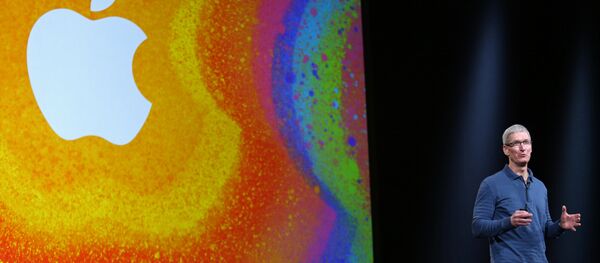Snowden had initially taunted Google in a tweet over the issue, by retweeting:
This is the most important tech case in a decade. Silence means @google picked a side, but it's not the public's. https://t.co/mi5irJcr25
— Edward Snowden (@Snowden) February 17, 2016
However, within hours, Google had responded to the Apple-FBI case.
The argument arose following the terrorist attack in San Bernardino, California, on December 2, 2015, in which 14 people were killed and 22 were seriously injured. In its investigation into the attack, the FBI requested data from Apple on one of the iPhones that belonged to one of the attackers. Although Apple complied with many of the requests, the FBI wanted more.
The @FBI is creating a world where citizens rely on #Apple to defend their rights, rather than the other way around. https://t.co/vdjB6CuB7k
— Edward Snowden (@Snowden) February 17, 2016
According to Tim Cook, CEO of Apple:
"Specifically, the FBI wants us to make a new version of the iPhone operating system, circumventing several important security features, and install it on an iPhone recovered during the investigation. In the wrong hands, this software — which does not exist today — would have the potential to unlock any iPhone in someone's physical possession."
'Troubling Precedent'
Apple believes that the government is asking the company to Apple to hack its own users and undermine decades of security advancements that protect its customers and make users less safe.
Apple is challenging the FBI and has now drawn support from both Google and WhatsApp, as well as praise from Snowden who revealed the mass surveillance that put companies like Google, Apple and Microsoft under pressure to confess to what they knew of the mass surveillance.
Google Chief Executive Sundar Pichai responded Thursday in a series of tweets, saying:
— sundarpichai (@sundarpichai) February 17, 2016
4/5 But that’s wholly different than requiring companies to enable hacking of customer devices & data. Could be a troubling precedent
— sundarpichai (@sundarpichai) February 17, 2016
WhatsApp founder Jan Koum responded by saying:
"I have always admired Tim Cook for his stance on privacy and Apple's efforts to protect user data and couldn't agree more with everything said in their Customer Letter today. We must not allow this dangerous precedent to be set. Today our freedom and our liberty is at stake."



